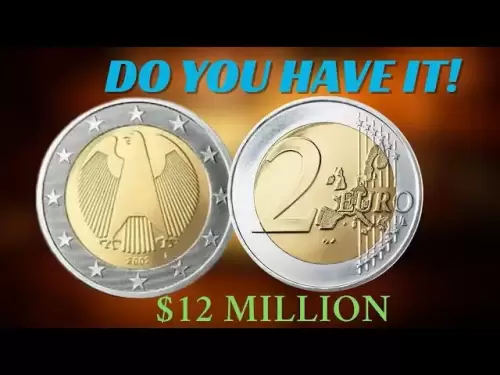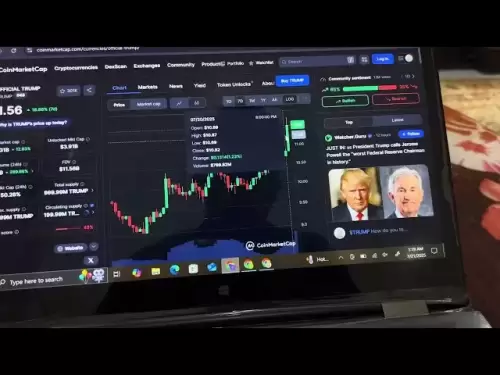-
 Bitcoin
Bitcoin $118400
0.39% -
 Ethereum
Ethereum $3814
2.17% -
 XRP
XRP $3.547
1.34% -
 Tether USDt
Tether USDt $1.000
0.00% -
 BNB
BNB $769.5
2.95% -
 Solana
Solana $191.7
6.36% -
 USDC
USDC $0.9999
0.01% -
 Dogecoin
Dogecoin $0.2722
7.75% -
 Cardano
Cardano $0.8995
5.59% -
 TRON
TRON $0.3158
-0.78% -
 Hyperliquid
Hyperliquid $47.37
4.46% -
 Stellar
Stellar $0.4848
3.54% -
 Sui
Sui $4.031
1.72% -
 Chainlink
Chainlink $20.11
3.94% -
 Hedera
Hedera $0.2832
3.16% -
 Avalanche
Avalanche $26.20
4.27% -
 Bitcoin Cash
Bitcoin Cash $530.5
0.67% -
 Shiba Inu
Shiba Inu $0.00001568
3.59% -
 Litecoin
Litecoin $118.4
1.42% -
 UNUS SED LEO
UNUS SED LEO $8.976
-0.23% -
 Toncoin
Toncoin $3.349
2.54% -
 Polkadot
Polkadot $4.590
2.54% -
 Uniswap
Uniswap $10.56
-0.59% -
 Ethena USDe
Ethena USDe $1.001
0.00% -
 Monero
Monero $327.7
0.39% -
 Pepe
Pepe $0.00001422
2.62% -
 Bitget Token
Bitget Token $4.973
-1.22% -
 Dai
Dai $1.000
0.02% -
 Aave
Aave $331.9
1.59% -
 Bittensor
Bittensor $429.6
-0.56%
Uquid Coin (UQC) Purchase Process
To acquire Uquid Coin (UQC), select a reputable exchange that offers UQC trading services and supports your preferred payment method, ensuring secure and efficient transactions.
Dec 28, 2024 at 01:28 am
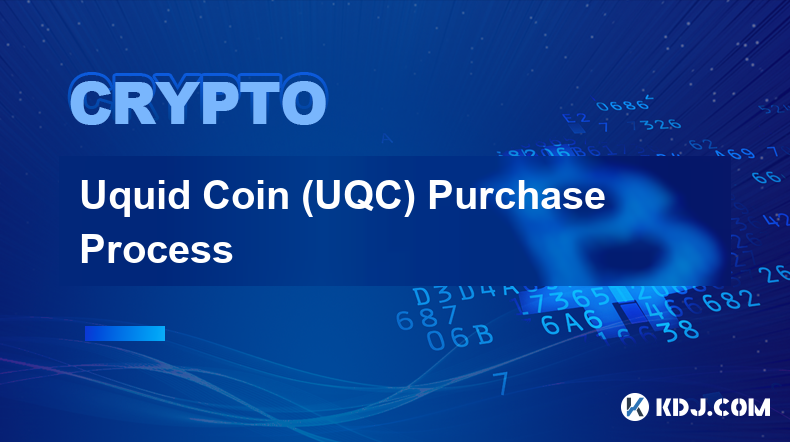
Key Points:
- Understanding the Uquid Coin (UQC) ecosystem
- Choosing a reputable exchange for UQC purchase
- Step-by-step guide to acquiring UQC
- KYC and AML compliance requirements
- Exploring various payment methods for UQC purchase
Comprehensive Guide to Purchasing Uquid Coin (UQC)
1. Understanding the Uquid Coin Ecosystem
Uquid Coin (UQC) is a native utility token of the Uquid ecosystem, a multifaceted platform that combines a cryptocurrency exchange with a payment gateway, remittance services, and a mobile wallet. UQC facilitates transactions within the ecosystem, offering users benefits such as:
- Reduced transaction fees on the Uquid platform
- Access to exclusive rewards and promotions
- Eligibility for governance and voting rights
2. Choosing a Reputable Exchange for UQC Purchase
Numerous cryptocurrency exchanges offer UQC trading services. Selecting a reliable exchange is crucial to ensure a secure and efficient transaction experience. Consider the following factors when evaluating exchanges:
- Reputation and track record
- Regulatory compliance
- Level of security measures
- Trading volume and liquidity for UQC
- Supported payment methods and fees
3. Step-by-Step Guide to Acquiring UQC
Once you have identified a suitable exchange, follow these steps to purchase UQC:
- Create an account: Register with the exchange and complete the necessary KYC (Know Your Customer) and AML (Anti-Money Laundering) verification procedures.
- Deposit funds: Transfer funds to your exchange account using a supported payment method such as bank transfer, credit card, or cryptocurrency.
- Navigate to the trading section: Locate the UQC trading pair (e.g., UQC/USDT, UQC/BTC) at the exchange.
- Place a buy order: Specify the amount of UQC you wish to purchase and the type of order (e.g., market order, limit order).
- Execute the trade: Confirm the order details and execute the purchase. The UQC will be credited to your exchange wallet.
4. KYC and AML Compliance Requirements
Many exchanges adhere to KYC and AML regulations to prevent illegal activities. These requirements involve verifying users' identities and collecting information about their financial transactions. The required documents for KYC verification may include a government-issued ID, proof of residence, and a selfie.
5. Exploring Various Payment Methods for UQC Purchase
Exchanges offer a variety of payment methods for UQC purchases, including:
- Bank transfer: Transfer funds directly from your bank account to the exchange.
- Credit card: Purchase UQC using a credit card, subject to transaction fees.
- Cryptocurrency: Transfer cryptocurrency to the exchange to trade for UQC.
- Mobile wallets: Use mobile wallets like Trust Wallet or MetaMask to purchase UQC with popular cryptocurrencies like Bitcoin or Ethereum.
FAQs:
Q: What is the purpose of UQC in the Uquid ecosystem?
A: UQC serves as the utility token of the Uquid platform, facilitating transactions, incentivizing users, and providing governance rights.
Q: How do I store my purchased UQC?
A: You can store your UQC in the exchange wallet, a hardware wallet, or a compatible software wallet.
Q: Are there any fees associated with purchasing UQC?
A: Yes, exchanges may charge trading fees, deposit fees, and withdrawal fees. It is important to review the fee schedule before executing any trades.
Q: What are the security measures in place for UQC transactions?
A: Reputable exchanges implement robust security practices such as two-factor authentication, SSL encryption, and cold storage for safeguarding user assets.
Q: Can I purchase UQC anonymously?
A: Most exchanges require KYC verification, making anonymous purchases difficult. However, कुछ decentralized exchanges may allow for anonymous trading.
Disclaimer:info@kdj.com
The information provided is not trading advice. kdj.com does not assume any responsibility for any investments made based on the information provided in this article. Cryptocurrencies are highly volatile and it is highly recommended that you invest with caution after thorough research!
If you believe that the content used on this website infringes your copyright, please contact us immediately (info@kdj.com) and we will delete it promptly.
- Toshi.bet: Leading the Crypto Casino Revolution in Poland 2025
- 2025-07-21 20:30:12
- Tether Gold (XAU₮) Expands: Mobee Indonesia & Tokenized Gold's Rising Tide
- 2025-07-21 20:50:12
- BlockDAG's Launch Access: No Vesting, Maximum Opportunity!
- 2025-07-21 21:30:12
- Altcoin Season Heats Up: Cardano Outperforms After Bitcoin Stabilizes
- 2025-07-21 20:50:12
- BlockchainFX: The 1000X Potential Crypto SHIB and DOGE Holders Are Eyeing
- 2025-07-21 21:30:12
- Delhi High Court and the Curious Case of the Missing ₹50 Coin
- 2025-07-21 21:35:13
Related knowledge

What is Polkadot (DOT)?
Jul 19,2025 at 06:35pm
Understanding the Basics of Polkadot (DOT)Polkadot (DOT) is a multi-chain network protocol designed to enable different blockchains to transfer messag...

What is Monero (XMR)?
Jul 21,2025 at 10:07am
What is Monero (XMR)?Monero (XMR) is a decentralized cryptocurrency designed to provide enhanced privacy and anonymity for its users. Unlike Bitcoin a...

How to add indicators to Ethereum chart on TradingView?
Jul 19,2025 at 07:15am
What Is an Ethereum Chart on TradingView?The Ethereum chart on TradingView is a visual representation of the price movement of Ethereum (ETH) over a s...
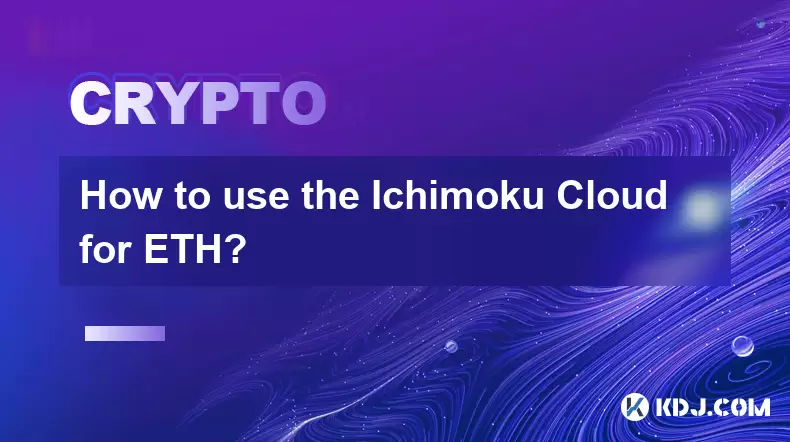
How to use the Ichimoku Cloud for ETH?
Jul 18,2025 at 09:56pm
Understanding the Ichimoku Cloud and Its ComponentsThe Ichimoku Cloud, also known as Ichimoku Kinko Hyo, is a versatile technical analysis tool that p...
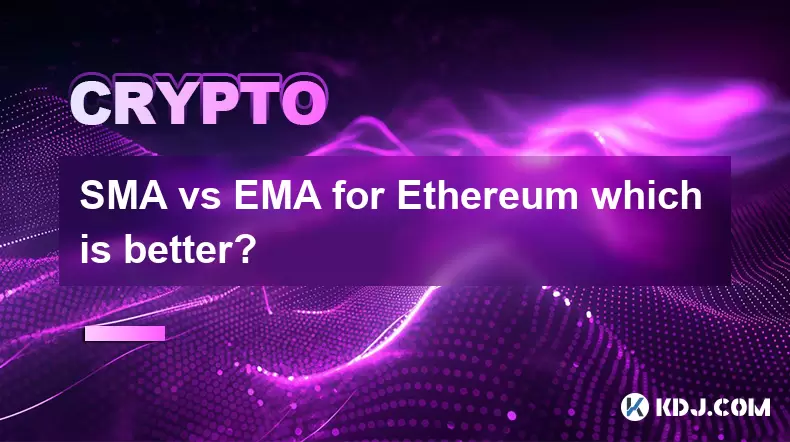
SMA vs EMA for Ethereum which is better?
Jul 19,2025 at 12:36am
Understanding the Basics of SMA and EMAIn the world of cryptocurrency trading, especially when dealing with Ethereum, technical indicators play a cruc...
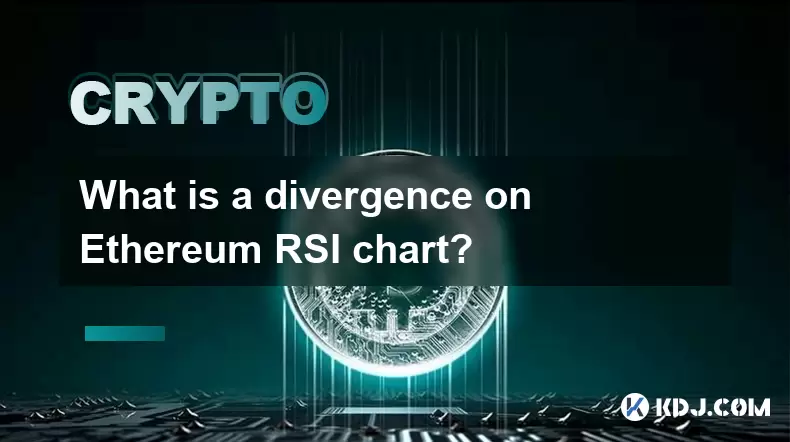
What is a divergence on Ethereum RSI chart?
Jul 21,2025 at 08:00am
Understanding the RSI IndicatorThe Relative Strength Index (RSI) is a momentum oscillator used in technical analysis to measure the speed and change o...

What is Polkadot (DOT)?
Jul 19,2025 at 06:35pm
Understanding the Basics of Polkadot (DOT)Polkadot (DOT) is a multi-chain network protocol designed to enable different blockchains to transfer messag...

What is Monero (XMR)?
Jul 21,2025 at 10:07am
What is Monero (XMR)?Monero (XMR) is a decentralized cryptocurrency designed to provide enhanced privacy and anonymity for its users. Unlike Bitcoin a...

How to add indicators to Ethereum chart on TradingView?
Jul 19,2025 at 07:15am
What Is an Ethereum Chart on TradingView?The Ethereum chart on TradingView is a visual representation of the price movement of Ethereum (ETH) over a s...

How to use the Ichimoku Cloud for ETH?
Jul 18,2025 at 09:56pm
Understanding the Ichimoku Cloud and Its ComponentsThe Ichimoku Cloud, also known as Ichimoku Kinko Hyo, is a versatile technical analysis tool that p...

SMA vs EMA for Ethereum which is better?
Jul 19,2025 at 12:36am
Understanding the Basics of SMA and EMAIn the world of cryptocurrency trading, especially when dealing with Ethereum, technical indicators play a cruc...

What is a divergence on Ethereum RSI chart?
Jul 21,2025 at 08:00am
Understanding the RSI IndicatorThe Relative Strength Index (RSI) is a momentum oscillator used in technical analysis to measure the speed and change o...
See all articles





















